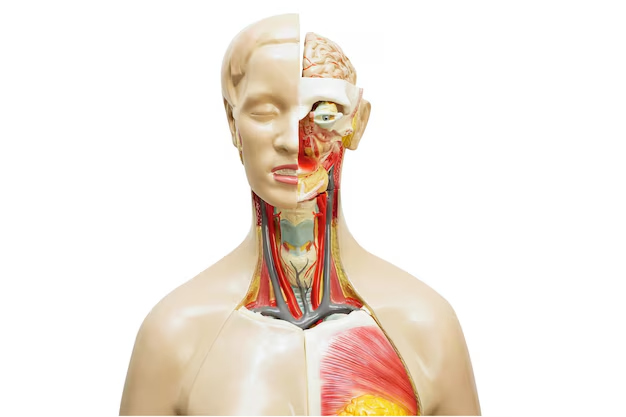Understanding the Thyroid Gland: Location, Function, and Importance
When it comes to understanding our bodies, the thyroid gland might not be the first thing that comes to mind. Hidden deep within the neck, this small yet mighty gland plays a crucial role in regulating various bodily functions. But where exactly is the thyroid gland located, and why is it so essential to our well-being? Let's embark on a journey to discover the whereabouts of the thyroid gland, its functions, and why maintaining its health is vital.
Mapping the Thyroid Gland: Where Is It Located?
The thyroid gland is located in the lower front section of your neck, nestled just below the Adam's apple. It's butterfly-shaped, with two lobes (right and left) connected by a thin piece of tissue called the isthmus. This positioning allows it to closely interact with other structures in the neck, including the trachea (windpipe) and the larynx (voice box).
Nearby Structures
Understanding the placement of the thyroid is essential, as its proximity to other vital organs and tissues highlights its integrated role in bodily functions. The trachea and larynx lie just behind the thyroid, whereas, laterally, it is flanked by the common carotid arteries and internal jugular veins. This strategic position underlines its pivotal influence on nerve systems and blood flow, affecting voice modulation and overall oxygen transport in the body.
The Essential Role of the Thyroid Gland
The thyroid gland might be small, but it plays a big role in regulating your body's metabolism. It produces hormones—primarily thyroxine (T4) and triiodothyronine (T3)—that affect almost every cell in your body. These hormones regulate metabolic rate, heart and digestive functions, muscle control, brain development, mood, and bone health. In essence, the thyroid helps convert oxygen and calories into energy.
Hormones and Their Functions
- Thyroxine (T4) and Triiodothyronine (T3): These two hormones are pivotal in determining the speed at which your body processes energy and carries out metabolic activities.
- Calcitonin: Though less talked about, calcitonin regulates calcium levels in your blood, playing a supporting role in bone health and maintenance.
Recognizing Thyroid Disorders: What Could Go Wrong?
Given its central role in regulating various bodily processes, any disruption in the thyroid can lead to noticeable health issues. Let's explore some common thyroid disorders:
Hypothyroidism
Hypothyroidism occurs when the thyroid gland doesn't produce enough hormones. Symptoms include fatigue, weight gain, cold intolerance, and depression. It's often caused by autoimmune diseases, certain medications, or iodine deficiency.
Hyperthyroidism
In contrast, hyperthyroidism is when the thyroid produces too much hormone. Symptoms include weight loss, increased heart rate, and anxiety. It can result from Graves' disease, thyroiditis, or nodules that overproduce thyroid hormones.
Goiter
A goiter is an enlarged thyroid gland, visible as a swelling in the neck. Although often harmless, it can indicate a thyroid disorder that requires attention.
Thyroid Nodules
These are lumps in the thyroid gland. While most are benign, some can produce excess hormones or become cancerous, necessitating a careful medical assessment.
Awareness and Diagnosis: Monitoring Thyroid Health
Given the prevalence and impact of thyroid disorders, regular check-ups are essential. Simple blood tests can measure levels of T4, T3, and thyroid-stimulating hormone (TSH), providing a snapshot of thyroid function.
Signs It's Time to See a Doctor
- Persistent Fatigue: If you're constantly tired despite adequate rest, it could signal a thyroid issue.
- Unexplained Weight Changes: Sudden weight gain or loss may point towards metabolic disturbances linked to thyroid imbalance.
- Neck Swelling: Any swelling or lump in the neck deserves medical evaluation.
- Heart Palpitations: A rapid or irregular heartbeat should be investigated promptly.
Practical Tips for Thyroid Health
While some factors affecting thyroid health are out of our control, several lifestyle habits can support optimal gland function:
Dietary Considerations
- Iodine-Rich Foods: Iodine is essential for thyroid hormone production. Incorporate iodized salt, fish, dairy, and seaweed into your diet.
- Balanced Nutrition: Selenium and zinc also play roles in thyroid health. Foods like nuts, seeds, and whole grains can help meet these needs.
Lifestyle Habits
- Regular Exercise: Physical activity can help regulate metabolism and support overall health.
- Stress Management: Chronic stress can disrupt hormone balance, so prioritize relaxation techniques like yoga or meditation.
Conclusion: The Thyroid's Indispensable Role
Understanding the thyroid gland's location, functions, and impact on your health is an essential step toward appreciating this unassuming organ's value. By being attentive to its functions and early signs of imbalance, you can better navigate your health journey. Remember, while the thyroid might be small, its role is significantly broad-reaching and fundamental to maintaining your well-being.
Quick Thyroid Health Recap: 🦋
- Location: Front of the neck, below the Adam's apple.
- Key Hormones: T4, T3 (metabolism), Calcitonin (calcium balance).
- Common Disorders:
- Hypothyroidism: Fatigue, weight gain.
- Hyperthyroidism: Weight loss, anxiety.
- Diet Tips: Include iodine, selenium, and zinc.
- Lifestyle Habits: Regular exercise, stress management.

Related Articles
- Can a Man Have a Thyroid Problem
- Can Taneringe Juice Make Thyroid Pil Absorption Faster
- Can Thyroid Cause Weight Gain
- Can Thyroid Eye Disease Be Cured
- Can Thyroid Issues Cause Hair Loss
- Can Thyroid Issues Cause Headaches
- Can Thyroid Medication Cause Brown Spots On Skin
- Can Thyroid Nodules Cause Mucus In Throat
- Can u Live Without Thyroid
- Can You Live Without a Thyroid
